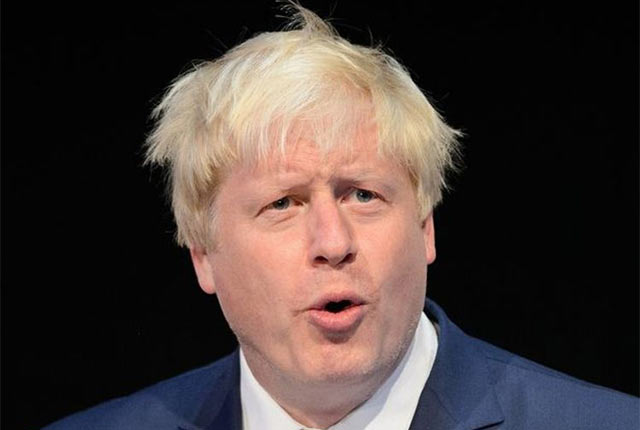Is this the end for Boris Johnson?

Annabelle Timsit, Karla Adam and William Booth
Correspondents
LONDON. — British Prime Minister Boris Johnson is in serious trouble — again — with more than three dozen members of his government resigning over the past days.
Ministers and aides, including two senior members of his cabinet, say they no longer have faith in his leadership after a series of scandals, the latest involving an ally accused of improper sexual conduct.
Johnson rose to power in 2019 on a promise to “get Brexit done.” At times during his nearly three years at 10 Downing Street, as the British prime minister’s office is known, he was popular with much of the British public, and even more popular within his Conservative Party — he secured a huge parliamentary majority for the party in a December 2019 general election. But since then, he has lost the public’s confidence: In a new YouGov poll, 69 percent of Britons said Johnson should resign, and many of his party members agree.
Senior cabinet ministers Rishi Sunak and Sajid Javid resigned on Tuesday within minutes of each other, expressing lack of confidence in Johnson’s leadership.
They appeared to have been tipped over the edge by the latest scandal engulfing Johnson and his government — involving allegations that the prime minister promoted Chris Pincher, a political ally he knew had been accused of misconduct, to a key government position and then mischaracterised what he knew about it.
Having a senior cabinet member resign is a big deal in British politics, and Sunak and Javid were in particularly important positions. Sunak, as chancellor of the exchequer, was essentially Britain’s finance minister, responsible for handling the cost-of-living crisis facing millions of Britons. Javid was Britain’s health and social care secretary, leading the response to the coronavirus pandemic.
Both had strong words for Johnson in their resignation letters. Sunak said: “The public rightly expect government to be conducted properly, competently and seriously. I recognise this may be my last ministerial job, but I believe these standards are worth fighting for and that is why I am resigning.”
He also implied that Johnson was not willing to be honest with the public about the costs of stabilizing Britain’s economy, which faces runaway inflation.
In his own resignation letter, Javid wrote that although Johnson survived a vote of no confidence last month, the Conservative Party was no longer demonstrating competence or acting in the national interest.
“It is clear to me that this situation will not change under your leadership,” he wrote to Johnson, “and you have therefore lost my confidence too.”
Johnson says he has no plans to quit. But this is only the latest in a series of scandals that Johnson has faced — although it appears to pose one of the biggest challenges to his leadership so far.
Johnson was criticized for his handling of the coronavirus pandemic. A public inquiry concluded in October 2021 that the pandemic was “one of the most important public health failures the United Kingdom has ever experienced.”
British government’s early pandemic response was a historic public health failure, lawmakers say
It was made worse by a series of scandals — dubbed “Partygate” — over several parties being held at Downing Street when lockdowns and social distancing were in place during the worst of the pandemic.
Voters described the actions as a “betrayal,” and many recounted the sacrifices they had made, including socially distanced funerals and restricted hospital visits, during the pandemic.
In April, Johnson was fined by police — making him the first sitting British prime minister found to have broken the law — for his attendance at a birthday party during lockdown in June 2020.
He has also faced allegations that he tried to secure a government job for his then-girlfriend Carrie Johnson (now his wife) when he was foreign secretary. And he has been criticized over the mounting cost-of-living crisis in the U.K.
Allies began withdrawing their support, with one condemning the “culture of casual law-breaking” at Downing Street. Last month, he faced a vote of no confidence from his party — and while he survived, more than 40 percent of his Conservative colleagues voted against him.
Johnson has made it clear he intends to stay as prime minister.
And because he survived the no-confidence vote in June, he is safe from party challenges for the next year.
But the Conservative Private Members’ Committee in Parliament, informally known as the 1922 Committee, could vote to change the rules that protect Johnson from another no-confidence vote within a year. This would allow Johnson’s party colleagues to vote again, sooner on whether to keep him as their leader.









Comments